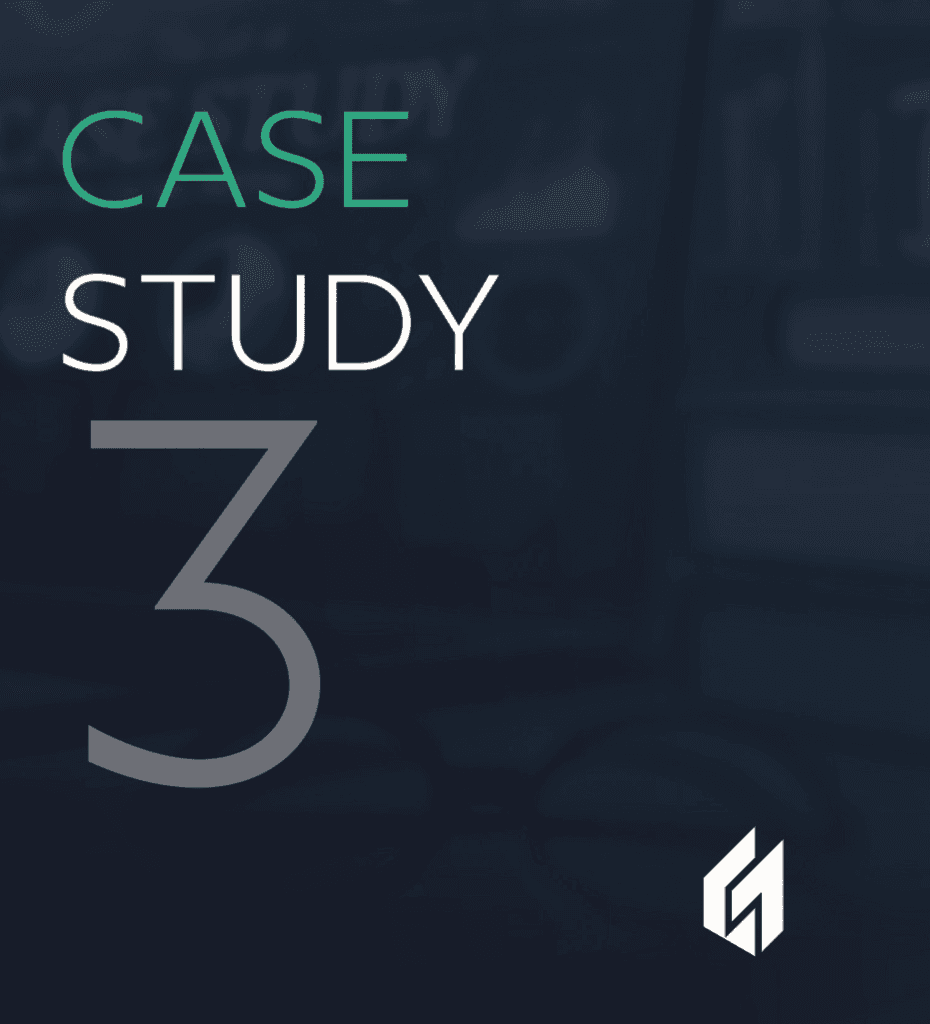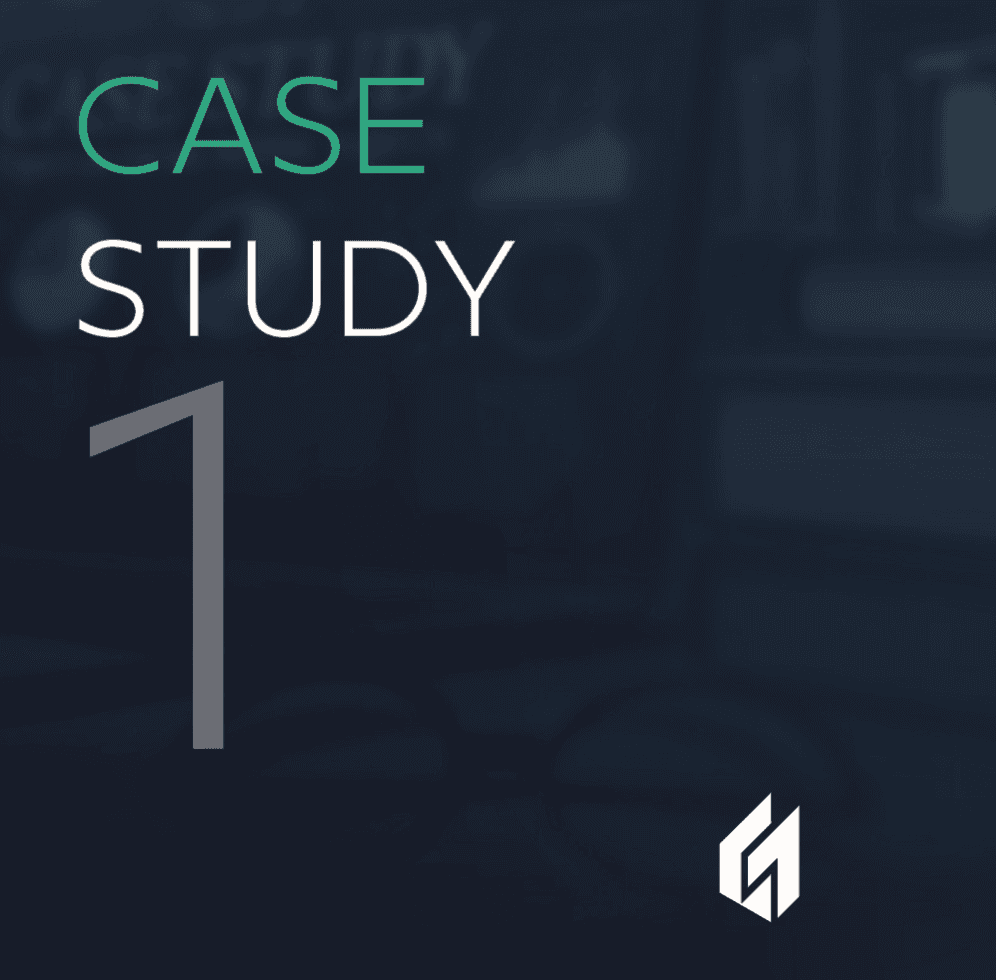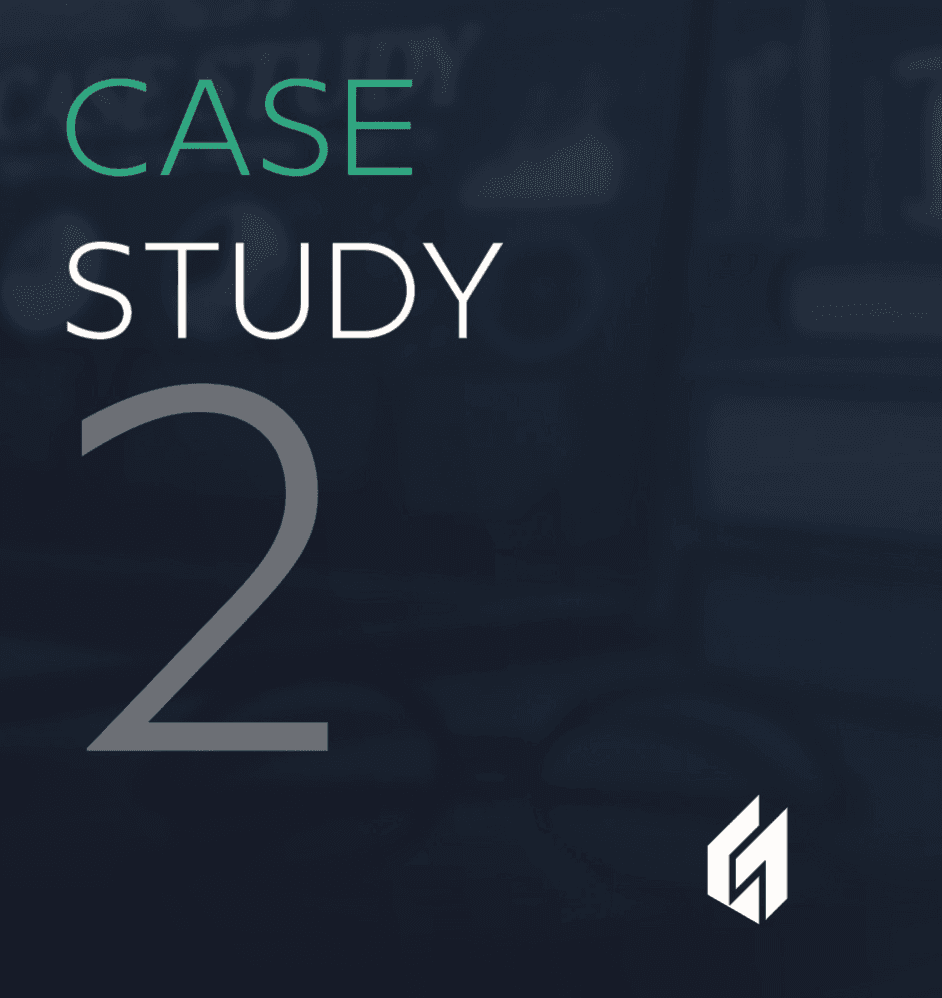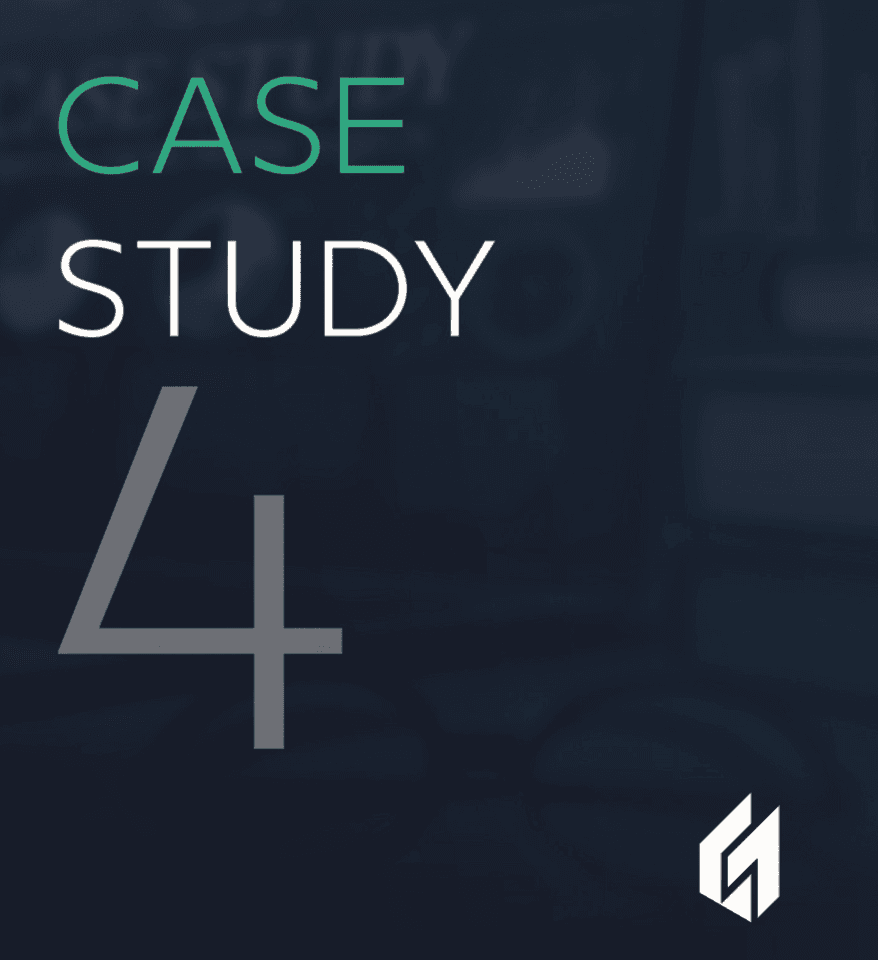Our Three Step Process
Reducing Customer Acquisition Cost Through Hyper-Localization: A Saudi SaaS Success Story - B2B SaaS - Saudi Arabia

Our Three Step Process
Reducing Customer Acquisition Cost Through Hyper-Localization: A Saudi SaaS Success Story - B2B SaaS - Saudi Arabia

B2B SaaS - Saudi Arabia
Reducing Customer Acquisition Cost Through Hyper-Localization: A Saudi SaaS Success Story
Executive Summary
This case study examines how a Saudi Arabia-based SaaS company specializing in e-commerce website-building solutions achieved a remarkable 56% reduction in Customer Acquisition Cost (CAC) through hyper-localized marketing strategies across five countries. The initiative demonstrated the power of deep localization and dynamic content optimization with a total investment of $50,000.
Company Background
The company provides a SaaS platform for e-commerce website building, based in Saudi Arabia and operating across multiple Gulf countries. In a competitive SaaS landscape, reducing CAC while maintaining growth became a crucial objective for sustainable expansion.
Challenge
Primary objectives included:
Reduce Customer Acquisition Cost
Maintain or improve conversion quality
Scale across multiple Gulf countries
Compete effectively in local markets
Optimize marketing spending efficiency
Solution Strategy
The company implemented a comprehensive localization and optimization strategy with four key components:
Hyper-Localized Content Strategy
Country-specific content creation
Local influencer integration
Cultural nuance adaptation
Market-specific messaging
Platform-Specific Content Optimization
Unique format for each social platform
Platform-specific engagement strategies
Native content adaptation
Channel-specific performance tracking
Dynamic Advertising Framework
Multiple variable testing
Audience segment targeting
Dynamic creative optimization
Real-time performance adjustment
Comprehensive A/B Testing
Content variation testing
Message optimization
Creative element testing
Performance tracking and iteration
Implementation Details
Budget Allocation:
$10,000 per country
5 country markets
Total investment: $50,000
One-month testing period
Testing Framework:
Systematic A/B testing
Content performance tracking
ROI measurement by country
Engagement metrics analysis
Results
The initiative achieved significant success:
CAC Reduction: 56% decrease
Market Coverage: Successfully tested in 5 countries
ROI Improvement: More efficient marketing spend
Scalable Model: Replicable across markets
Key Success Factors
Deep Localization
Market-specific content
Local influencer partnerships
Cultural adaptation
Regional messaging
Platform Optimization
Custom content formats
Platform-specific strategies
Engagement optimization
Channel performance tracking
Dynamic Testing
Variable testing
Real-time optimization
Performance monitoring
Rapid iteration
Lessons Learned
Market Understanding
Local nuances matter significantly
One-size-fits-all approaches are less effective
Cultural context drives engagement
Regional influencers impact performance
Content Strategy
Platform-specific optimization is crucial
Dynamic content outperforms static
Testing drives improvement
Localization depth affects results
Resource Allocation
Targeted spending yields better results
Market-specific budgets enable control
Testing period clarity improves outcomes
Systematic measurement enables the optimization
Recommendations
Market Approach
Invest in deep local understanding
Develop market-specific strategies
Build local partnerships
Monitor regional trends
Content Development
Create platform-specific content
Implement systematic testing
Maintain dynamic optimization
Track performance metrics
Budget Management
Allocate market-specific budgets
Set clear testing periods
Monitor ROI by market
Scale successful approaches
Conclusion
This case study demonstrates that significant CAC reduction is achievable through strategic localization and systematic optimization. The success across five countries proves the scalability of this approach in the SaaS space, particularly for e-commerce solutions.
Future Implications
Scalable model for new market entry
Replicable testing framework
Clear ROI measurement approach
Sustainable growth strategy
This initiative provides a blueprint for SaaS companies looking to optimize their customer acquisition costs while expanding in diverse markets through deep localization and systematic testing.
B2B SaaS - Saudi Arabia
Reducing Customer Acquisition Cost Through Hyper-Localization: A Saudi SaaS Success Story
Executive Summary
This case study examines how a Saudi Arabia-based SaaS company specializing in e-commerce website-building solutions achieved a remarkable 56% reduction in Customer Acquisition Cost (CAC) through hyper-localized marketing strategies across five countries. The initiative demonstrated the power of deep localization and dynamic content optimization with a total investment of $50,000.
Company Background
The company provides a SaaS platform for e-commerce website building, based in Saudi Arabia and operating across multiple Gulf countries. In a competitive SaaS landscape, reducing CAC while maintaining growth became a crucial objective for sustainable expansion.
Challenge
Primary objectives included:
Reduce Customer Acquisition Cost
Maintain or improve conversion quality
Scale across multiple Gulf countries
Compete effectively in local markets
Optimize marketing spending efficiency
Solution Strategy
The company implemented a comprehensive localization and optimization strategy with four key components:
Hyper-Localized Content Strategy
Country-specific content creation
Local influencer integration
Cultural nuance adaptation
Market-specific messaging
Platform-Specific Content Optimization
Unique format for each social platform
Platform-specific engagement strategies
Native content adaptation
Channel-specific performance tracking
Dynamic Advertising Framework
Multiple variable testing
Audience segment targeting
Dynamic creative optimization
Real-time performance adjustment
Comprehensive A/B Testing
Content variation testing
Message optimization
Creative element testing
Performance tracking and iteration
Implementation Details
Budget Allocation:
$10,000 per country
5 country markets
Total investment: $50,000
One-month testing period
Testing Framework:
Systematic A/B testing
Content performance tracking
ROI measurement by country
Engagement metrics analysis
Results
The initiative achieved significant success:
CAC Reduction: 56% decrease
Market Coverage: Successfully tested in 5 countries
ROI Improvement: More efficient marketing spend
Scalable Model: Replicable across markets
Key Success Factors
Deep Localization
Market-specific content
Local influencer partnerships
Cultural adaptation
Regional messaging
Platform Optimization
Custom content formats
Platform-specific strategies
Engagement optimization
Channel performance tracking
Dynamic Testing
Variable testing
Real-time optimization
Performance monitoring
Rapid iteration
Lessons Learned
Market Understanding
Local nuances matter significantly
One-size-fits-all approaches are less effective
Cultural context drives engagement
Regional influencers impact performance
Content Strategy
Platform-specific optimization is crucial
Dynamic content outperforms static
Testing drives improvement
Localization depth affects results
Resource Allocation
Targeted spending yields better results
Market-specific budgets enable control
Testing period clarity improves outcomes
Systematic measurement enables the optimization
Recommendations
Market Approach
Invest in deep local understanding
Develop market-specific strategies
Build local partnerships
Monitor regional trends
Content Development
Create platform-specific content
Implement systematic testing
Maintain dynamic optimization
Track performance metrics
Budget Management
Allocate market-specific budgets
Set clear testing periods
Monitor ROI by market
Scale successful approaches
Conclusion
This case study demonstrates that significant CAC reduction is achievable through strategic localization and systematic optimization. The success across five countries proves the scalability of this approach in the SaaS space, particularly for e-commerce solutions.
Future Implications
Scalable model for new market entry
Replicable testing framework
Clear ROI measurement approach
Sustainable growth strategy
This initiative provides a blueprint for SaaS companies looking to optimize their customer acquisition costs while expanding in diverse markets through deep localization and systematic testing.
B2B SaaS - Saudi Arabia
Reducing Customer Acquisition Cost Through Hyper-Localization: A Saudi SaaS Success Story
Executive Summary
This case study examines how a Saudi Arabia-based SaaS company specializing in e-commerce website-building solutions achieved a remarkable 56% reduction in Customer Acquisition Cost (CAC) through hyper-localized marketing strategies across five countries. The initiative demonstrated the power of deep localization and dynamic content optimization with a total investment of $50,000.
Company Background
The company provides a SaaS platform for e-commerce website building, based in Saudi Arabia and operating across multiple Gulf countries. In a competitive SaaS landscape, reducing CAC while maintaining growth became a crucial objective for sustainable expansion.
Challenge
Primary objectives included:
Reduce Customer Acquisition Cost
Maintain or improve conversion quality
Scale across multiple Gulf countries
Compete effectively in local markets
Optimize marketing spending efficiency
Solution Strategy
The company implemented a comprehensive localization and optimization strategy with four key components:
Hyper-Localized Content Strategy
Country-specific content creation
Local influencer integration
Cultural nuance adaptation
Market-specific messaging
Platform-Specific Content Optimization
Unique format for each social platform
Platform-specific engagement strategies
Native content adaptation
Channel-specific performance tracking
Dynamic Advertising Framework
Multiple variable testing
Audience segment targeting
Dynamic creative optimization
Real-time performance adjustment
Comprehensive A/B Testing
Content variation testing
Message optimization
Creative element testing
Performance tracking and iteration
Implementation Details
Budget Allocation:
$10,000 per country
5 country markets
Total investment: $50,000
One-month testing period
Testing Framework:
Systematic A/B testing
Content performance tracking
ROI measurement by country
Engagement metrics analysis
Results
The initiative achieved significant success:
CAC Reduction: 56% decrease
Market Coverage: Successfully tested in 5 countries
ROI Improvement: More efficient marketing spend
Scalable Model: Replicable across markets
Key Success Factors
Deep Localization
Market-specific content
Local influencer partnerships
Cultural adaptation
Regional messaging
Platform Optimization
Custom content formats
Platform-specific strategies
Engagement optimization
Channel performance tracking
Dynamic Testing
Variable testing
Real-time optimization
Performance monitoring
Rapid iteration
Lessons Learned
Market Understanding
Local nuances matter significantly
One-size-fits-all approaches are less effective
Cultural context drives engagement
Regional influencers impact performance
Content Strategy
Platform-specific optimization is crucial
Dynamic content outperforms static
Testing drives improvement
Localization depth affects results
Resource Allocation
Targeted spending yields better results
Market-specific budgets enable control
Testing period clarity improves outcomes
Systematic measurement enables the optimization
Recommendations
Market Approach
Invest in deep local understanding
Develop market-specific strategies
Build local partnerships
Monitor regional trends
Content Development
Create platform-specific content
Implement systematic testing
Maintain dynamic optimization
Track performance metrics
Budget Management
Allocate market-specific budgets
Set clear testing periods
Monitor ROI by market
Scale successful approaches
Conclusion
This case study demonstrates that significant CAC reduction is achievable through strategic localization and systematic optimization. The success across five countries proves the scalability of this approach in the SaaS space, particularly for e-commerce solutions.
Future Implications
Scalable model for new market entry
Replicable testing framework
Clear ROI measurement approach
Sustainable growth strategy
This initiative provides a blueprint for SaaS companies looking to optimize their customer acquisition costs while expanding in diverse markets through deep localization and systematic testing.
Other Projects
Other Case Studies
Check our other project case studies with detailed explanations
Other Projects
Other Case Studies
Check our other project case studies with detailed explanations
Other Projects
Other Case Studies
Check our other project case studies with detailed explanations


